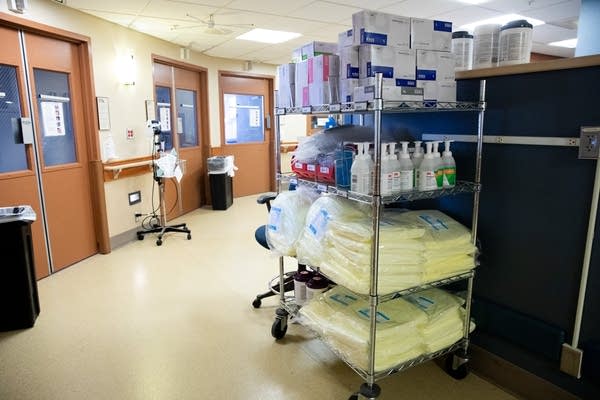Hospitals cut pay, furlough workers to ease COVID-19 financial blow

PPE and sanitizer sit on a cart at Bethesda Hospital in St. Paul, Minn., on Thursday, March 26. Across the state, hospitals are making cost-cutting measures to shoulder the blow of a temporary ban on elective surgeries and procedures. Together, hospitals are predicting a $3 billion loss over the next three months.
Evan Frost | MPR News
Go Deeper.
Create an account or log in to save stories.
Like this?
Thanks for liking this story! We have added it to a list of your favorite stories.


